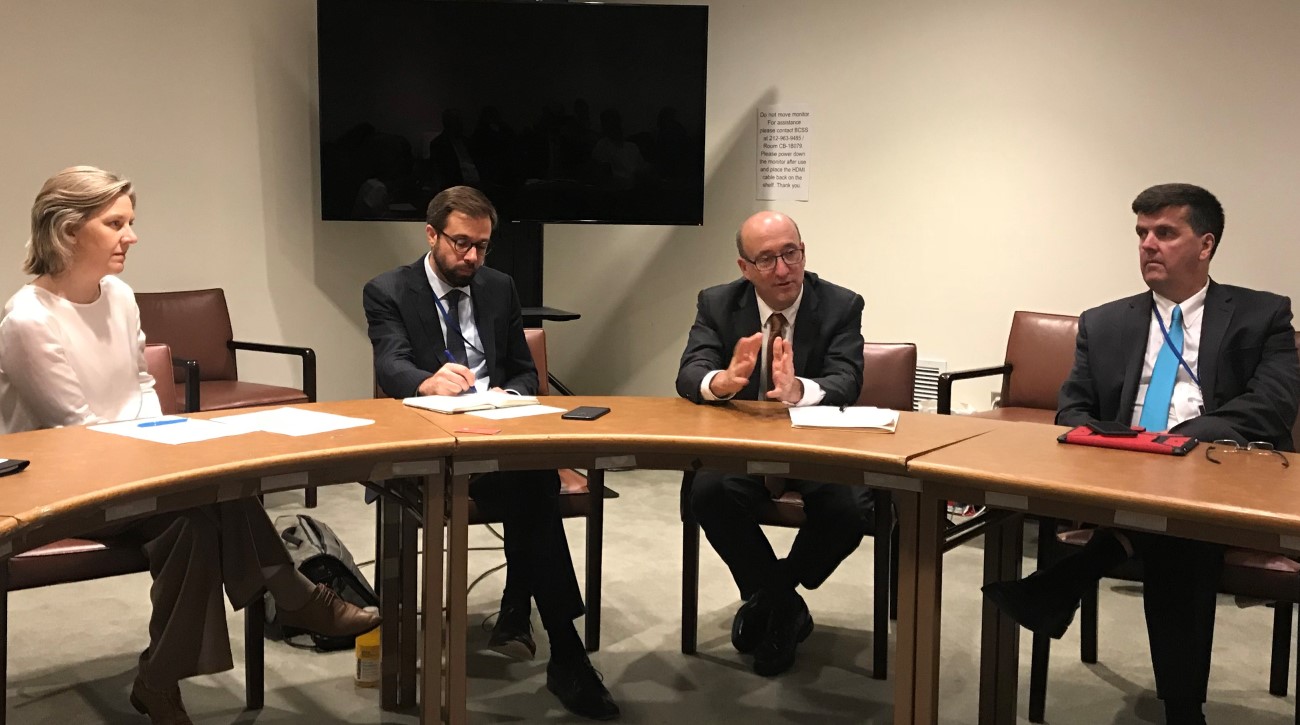At a special event held at the United Nations Headquarters in conjunction with the 73rd Session of the U.N. General Assembly, “Exploitation by exposure: Human rights and toxic exposures,” a panel of experts discussed why and how toxic exposures can violate human rights. David Michaels, PhD of the George Washington University Milken Institute School of Public Health (Milken Institute SPH) was a panelist.
Swedish Minister Karolina Skog was also a panelist and said that the spread of dangerous chemicals constitutes a major health risk at the global level. She called for a global agreement on chemicals and waste, comparable to the Paris Agreement for the climate.
“Toxic exposures that shorten lives, that destroy the lungs of workers, that slow the neurological and intellectual development of children, that cause birth defects- all preventable and in too many cases predictable- surely these are human rights violations,” Michaels said in his talk.
The event also featured Baskut Tuncak, the UN Special Rapporteur on human rights and toxics. This year he reported about human rights violations arising from toxic pollution to the UN General Assembly for the first time. According to the report, one worker dies every 30 seconds from exposure to hazardous chemicals and radiation. An estimated 2.8 million people die every year as a result of an unsafe or harmful work environment.
The pressing issues discussed by the panel included childhood exposure, workers’ rights and the need for greater ambition at the international level to protect everyone’s human rights. They spoke about the rights to life, health, food, water, just conditions of work and a healthy environment.
“Exposures to air pollutants or to pesticides or to hazardous wastes cannot be accepted as inevitable, the price of development, or simply because families need to eat,” Michaels said. “As [Tuncak’s] report documents, the health impacts of these exposures are real and they are enormous. Premature death and disability destroy many families, and they hold back development by dramatically reducing the globe’s most important natural resource: our human capital.”
The panelists shown in the above photo are (left to right): Swedish Minister Skog, Baskut, Michaels and Richard Fuller, president of Pure Earth, an international non-profit organization dedicated to solving pollution problems in low- and middle-income countries, where human health is at risk.


